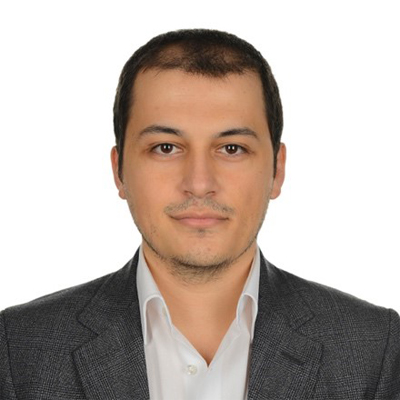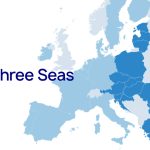The reconstruction of Europe, which was devastated during World War II, was not possible without support. Economic difficulties of European countries were alleviated through the Marshall Plan with the support of the USA. However, following the war, European countries were left with a situation where they did not trust their own military capabilities. Therefore, NATO was proposed by the USA under the pretext of “protecting Europe” and to balance Soviet military presence, hence the Alliance was established in 1949. Thus, Europe entrusted its defense to NATO and indirectly to the USA through the organization. The protection provided by the USA created a secure environment for European countries without requiring defense investments and expenditures. Although budgets allocated to defense were redirected towards prosperity and development, increasing wealth in European states, it led to the depletion of military stocks, lack of ammunition renewal, and inevitably brought about complacency.
With the renewed threat of the Russia-Ukraine War being perceived in their own continent, European countries began to discuss new approaches to defense. States like France which no longer relied on NATO, and even those like Germany, which was structurally committed to the Alliance, started to consider a European-centered defense architecture.
Duration and Determination
The decision to increase military spending by European governments aims to enhance procurement and mobility capabilities. Moreover, alongside the independent approaches of states, we observe that the security aspect of the European Union (EU), which lacks a defense approach in its founding purpose and institutional structure, is also strengthening. The EU aims to increase both the Union’s and the individual member states’ defense capacities institutionally with new organizations, decisions, and funds. However, it cannot be stated that policymakers have a very strong hand in strengthening the defense mechanism, in terms of the time and determination required for all these expenditures.
For the increased arms spending in Europe to materialize, ammunition and equipment need to be delivered to the armies. Currently, while the war continues in Ukraine and orders have been piling up from many countries, the delivery of these products to the armies will take time. Moreover, the necessary training and bureaucratic processes for the use of these products will proceed quite slowly in the cumbersome institutional structure in Europe. In addition to national armies, military initiatives within the EU with the aim of establishing a European Army have also been delayed due to the lack of a common vision and the detailed structure of EU norms in the formation of the acquis communautaire. Furthermore, when we add the long-standing military bureaucracy that has not used combat capabilities for a long time, unmotivated military personnel, and a societal structure distant from this idea, it is necessary to emphasize the lack of determination in the human factor, which is crucial for war or defense capacity.
Alternative Approaches to Defense
Despite all intentions, investments in national armies and efforts in European-centered defense architecture, the failure to achieve the desired progress poses risks in terms of preparing for a long-term tension in relations with Russia, which may tend to increase political and military provocations against NATO countries. On the other hand, the recent call by EU High Representative for Foreign Affairs and Security Policy Josep Borrell to Western countries at the Munich Security Conference to “significantly strengthen their security and defense capabilities” reinforced the perception that alternative processes and institutions could be considered in enhancing defense capacity.
One institution that comes to mind for an alternative defense mechanism is private military companies (PMCs), which offer various military, paramilitary, and security services to governments, international organizations, and non-state actors, as well as to the private sector. Russia’s intensive use of the Wagner company in Ukraine during the early stages of the conflict particularly evoked similar conditions for Europe. Despite the long-standing political landscape in Europe and the challenges in the transformation of armies, private military companies seem to facilitate tasks by being “more flexible but quickly managed and directed to meet customer demands.”
Entities like French GEOS, German ASGAARD, and British AEGIS continue their activities as European-based private military companies. While these existing companies operate within a structure regulated by national laws and limitations, it is evident that they are not institutionally structured to serve the common interests of Europe, especially in chronically unstable regions. At this point, the conditions are quite challenging for the establishment of a structure where the common customer is Europe.
Effects, Benefits and Challenges of Private Military Companies in Europe
These regulatory conditions will hinder the formation of a warrior group in Europe. The granting of independent operational capabilities by states to organizations whose structure is similar to that of Wagner -associated with governments, but whose official tasks, actions, and even their capacities in terms of equipment, personnel, and ammunition are not clearly known- is an unexpected situation within the European norms’ ecosystem. It would be quite challenging for Europe to manage such formations within its legal and political framework, even within the Union.
Despite these difficulties, the shortcomings in European politics and armies could transform the approach to these companies. Another significant factor to consider is the fact that against the backdrop of European officers and soldiers, who have largely lost their motivation within the predominantly professional military system across the continent, there is a growing trend of personnel joining these companies with the motivation to earn approximately ten times the financial gain of an officer and directly engage in warfare. Moreover, the partial flexibility in the procurement and use of equipment and vehicles will facilitate political maneuvers. However, beyond this, the most crucial issue remains the handicaps of European states in officially engaging in warfare.
The political and social structure constructed by European states, along with the non-interventionist image in foreign policy within the current system, also limits the operational capability of national armies. Using companies to avoid officially being involved in a conflict, in line with alliance conditions like or agreements such as NATO’s, seems increasingly sensible for Europe. Supporting the defense of territories without opening a front on behalf of Europe, avoiding showing flags in regions where interests are sought to be realized, especially in the defense of Ukraine today and similar conditions in the future, aligns with the basic approach.
Considering all the challenges and advantages together, it is evident that the establishment of a PMC structure in Europe would greatly facilitate defense affairs. However, Europe’s progression with such structure that does not conform to the norms and system it advocates, will face criticisms that the era of dominance through the established system is coming to an end, a critique that Western countries frequently face.
.
This article has been published by Anadolu Agency on March 13, 2024.









